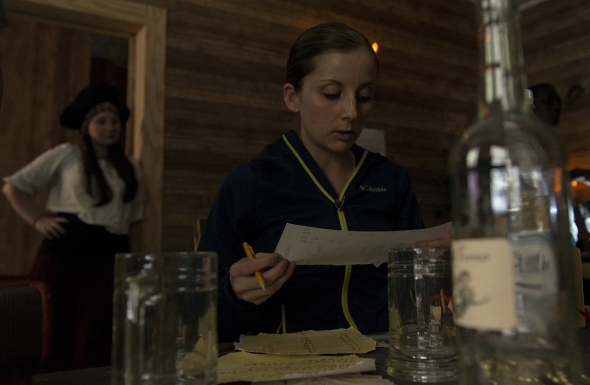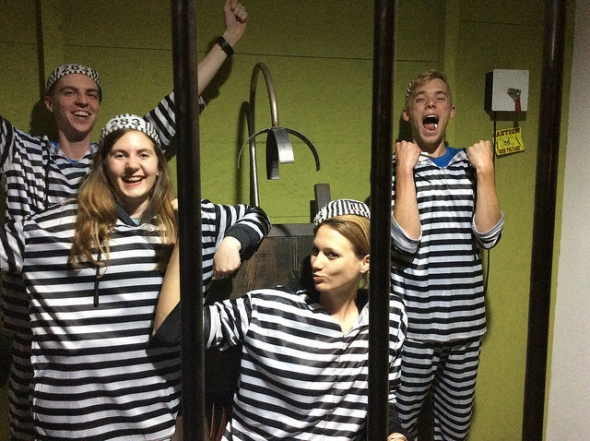The pressure is on...
Image: Airman 1st Class Tryphena Mayhugh, Wikimedia Commons (license)
Escape games work because they appeal to the very sense of immersion big parks like Disney and Universal work so hard to achieve for mass audiences—only, escape games can do this on a far more intimate level since they can carefully control guest numbers. The resulting experience is regularly described by first-timers as “the most fun they have ever had”.
We once found ourselves in an Indiana Jones-style escape room with a nice couple on vacation who signed up on a whim. The husband was a blue-collar workman who hated adventure games (indeed, he told me a hilarious story about having smashed a copy of the game, Myst, after he got frustrated with the puzzles). Not ten minutes into the escape game, this same man was tearing apart piles of rubble, poking at wall tiles, and working out complex computations with excitement to find the next clue.
Theme parks brilliantly emulate thrills and wonder, but there is one element of true adventure they cannot fully achieve. On a theme park ride, there are no true stakes. In the back of our minds, even on the most thrilling coaster, we know the ride is going to follow a scripted course. The Yeti isn’t actually going to get us. The elevator isn’t actually going to shatter when it hits the bottom. The dragon won’t actually reach us. We generally know how the story will end.
Escape games replicate the stakes of a real adventure through clever manipulation of challenges and motivations. Instead of just giving audiences an experience to enjoy, we are given a quest to complete, an objective that relies fully on our skills and choices. If you fail to solve the puzzles, you don’t get to see how the story ends. The same endorphins and adrenaline that video games fire in our brains are supercharged as we fully immerse in the adventure.
Unpredictable elements
Image: Breakout Basel, Flickr (license)
Escape games are regularly lauded as excellent team-building exercises for corporate and youth groups. If you are attempting the game with strangers, you are forced to get to know your fellow teammates very quickly. Even if you are somewhat awkward with social skills, this usually proves surprisingly easy since you have a common goal. Still, the element of human choice seriously amps up the tension in escape games in ways that most theme parks have not yet figured out how to replicate.
The escape game experience could easily be likened to spending an hour on a reality TV show. In popular shows like The Amazing Race, The Mole, or Survivor, contestants with deliberately varied backgrounds are forced to team up to complete challenges. Producers go out of their way to increase social tension in these situations to make good drama. The contestants either work together or they fail.
There is no predicting who might have what strengths or quirks when you enter an escape game. The math genius on your team might turn out to be scared of dark spaces, or your drama queen cousin might turn out to be brilliant with spatial reasoning puzzles. In the end, you get to know each other better, and the adventure experience feels all the more genuine even if things got stressful. For families and other teams, it is a great way to learn how to work together.



Add new comment